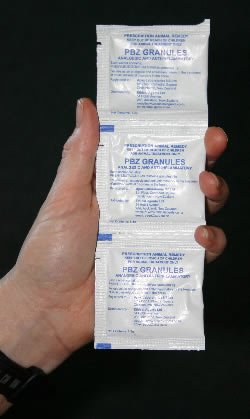Here Here for the British!! All horses slaughtered in Britain for human consumption must now undergo testing for Bute!! If they started testing all of the US horses sent to slaughter, I bet there would be a few eyes opened. ~Declan
** For more frequent updates on the European horsemeat scandal, please also visit Children 4 Horses on Facebook, where more articles and updates are also posted. **
All British slaughter horses to undergo bute testing
By Horsetalk.co.nz on Feb 12, 2013 in News

Phenylbutazone
All horses slaughtered in Britain for human consumption must now undergo testing for the common anti-inflammatory drug, Phenylbutazone.
Phenylbutazone, or bute, is banned from entering the human food chain because it can cause rare but serious adverse effects in humans, such as blood discrasia.
A zero limit for bute has been set for slaughter horses because scientists do not know the precise mechanism by which the drug can trigger these problems in humans.
Without that knowledge, scientists cannot be sure whether the tiniest exposure through eating tainted meat can trigger the disease, or whether longer or more significant exposure is required.
However, most scientists agree that the risk is low.
Britain’s Food Standards Agency today announced a new system for horses slaughtered in Britain. Each horse carcass will require a negative phenylbutazone test before it is allowed to enter the food chain.
The agency has developed a testing regime which enables results to come through about 48 hours after the test is carried out.
Each carcass will be kept in storage by individual food businesses, pending the result. If the test result is negative, the horse will be released into the food chain. However, if the horse tests positive for bute it will be disposed of as animal by-product under the authority of the agency.
The agency has been testing for bute in all horses slaughtered in Britain that are meant for human consumption since January 30. Horses that have been treated with bute are not allowed to enter the food chain.
In 2012, samples taken by the agency identified nine cases where horses tested positive for bute. None of the meat was placed for sale on the UK market. Where the meat had been exported to other countries, the relevant food safety authorities were informed.
Currently in Britain, any horse being sold for its meat and destined for the food chain must be slaughtered in one of five slaughterhouses specifically approved by the agency. About 9000 horses were slaughtered for this purpose in 2012, with the bulk of of the meat destined for markets in Europe.
No comments:
Post a Comment